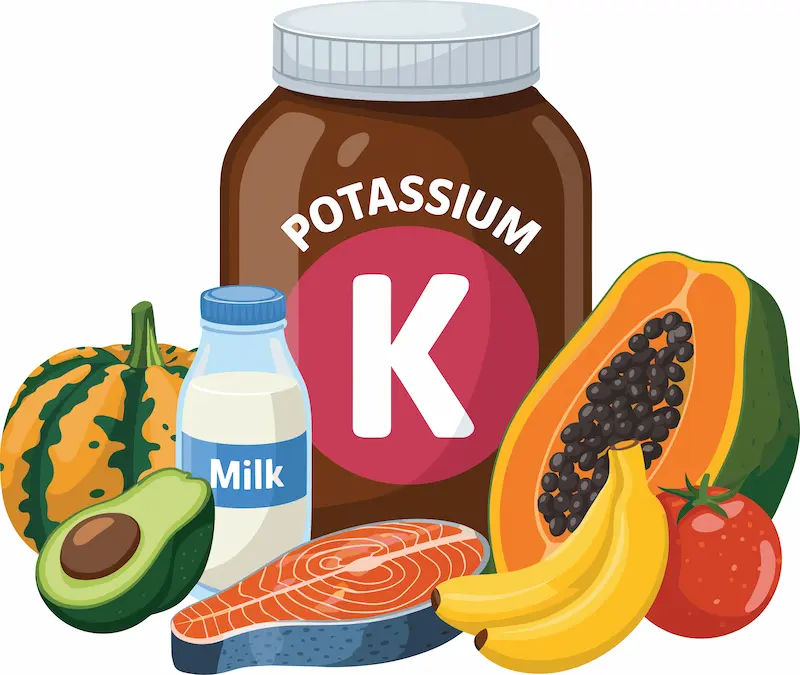Ways To Gain Weight Fast
Understand the relationship between height, weight, and BMI using a detailed chart. Learn how to assess your body mass index to determine if you are underweight, normal, overweight, or obese.


Trying to gain weight can be just as challenging as trying to lose it. In a world often focused on weight loss, those looking to add healthy pounds can feel overlooked and unsure where to start. If you're underweight due to a fast metabolism, a lack of appetite, recovery from an illness, or simply genetics, you're not alone. Gaining weight isn't just about eating junk food; it's about nourishing your body with calorie-dense, nutrient-rich foods and building muscle mass strategically. This comprehensive guide cuts through the confusion to provide you with science-backed, effective strategies to help you gain weight fast in a sustainable and healthy way. We'll explore everything from overhauling your diet and workout routine to understanding the crucial role of consistency and tracking. Get ready to transform your approach and achieve your weight gain goals with confidence.
Understanding the Fundamentals of Healthy Weight Gain
Before diving into the how, it's essential to understand the what. Healthy weight gain focuses primarily on increasing lean muscle mass rather than accumulating excess body fat. While some fat gain is inevitable and normal, the goal is to tip the scales in favor of muscle through a combination of increased caloric intake and progressive strength training. This approach ensures that the weight you gain improves your strength, metabolism, and overall health, rather than compromising it. It's a marathon, not a sprint, requiring patience and consistency.
Consult a Top Specialist
The Golden Rule: Calorie Surplus Explained
At its core, gaining weight requires you to be in a caloric surplus. This means you must consume more calories than your body burns daily. Your body uses calories (energy) for everything from breathing and pumping blood to walking and exercising. This total energy expenditure is known as your Total Daily Energy Expenditure (TDEE).
How to Calculate Your Calorie Needs
To start, you need to estimate your TDEE. You can use an online TDEE calculator, which factors in your age, height, current weight, and activity level. Once you have this number, aim to consume 300 to 500 calories more than your TDEE. This moderate surplus is ideal for promoting muscle growth while minimizing fat gain. For example, if your TDEE is 2,200 calories, you should target 2,500-2,700 calories per day.
The Importance of Tracking Your Intake
It's easy to overestimate or underestimate how much you're eating. Using a food tracking app like MyFitnessPal for the first few weeks can provide invaluable insight. It helps you ensure you're hitting your calorie target and allows you to see your macronutrient breakdown (carbs, protein, fat), which is our next crucial topic.
Power Up Your Plate: Nutrient-Dense Foods for Weight Gain
Not all calories are created equal. 500 calories from pizza are not utilized by your body in the same way as 500 calories from chicken, rice, avocado, and a smoothie. To build a healthy physique, you need to focus on nutrient-dense foods.
Smart Carbohydrates for Energy
Carbohydrates are your body's primary energy source, fueling your workouts and daily activities. Choose complex carbs that provide sustained energy and fiber.
Examples: Whole grains (oats, quinoa, brown rice), starchy vegetables (sweet potatoes, corn, peas), whole-wheat bread and pasta, and fruits (bananas, mangoes, dates).
Healthy Fats: Your Calorie Secret Weapon
Fats are the most calorie-dense macronutrient, providing 9 calories per gram (compared to 4 for protein and carbs). Incorporating healthy fats is an efficient way to boost your calorie intake.
Examples: Avocado, nuts (almonds, walnuts), seeds (chia, flax, sunflower), nut butters (peanut butter, almond butter), and olive oil.
Protein: The Building Blocks of Muscle
Protein is essential for repairing and building muscle tissue, especially after a workout. Aim for 1.6-2.2 grams of protein per kilogram of body weight.
Examples: Chicken breast, salmon, eggs, Greek yogurt, cottage cheese, lean red meat, lentils, and protein powder.
Strategic Eating: Meal Timing and Frequency
If you have a small appetite, trying to eat three large meals a day can be overwhelming. A more effective strategy for increasing calorie intake is to eat five to six smaller meals or snacks throughout the day. This keeps a steady stream of nutrients flowing to your muscles and prevents you from feeling overly full and bloated.
The Power of Large Portions and Second Helpings
Get into the habit of serving yourself slightly larger portions than you might initially want. Don't be afraid to go back for a second helping, especially of calorie-dense foods like rice, potatoes, or meat. Every extra spoonful adds up over the course of a day.
The Role of Liquid Calories: Smoothies and Shakes
Liquid calories can be a game-changer for those who struggle to eat enough solid food. They are less filling and can be packed with nutrients and calories.
DIY Weight-Gain Shake Recipes
Skip the sugary, store-bought weight gainers and make your own. Here’s a simple, high-calorie recipe:
Base: 2 cups whole milk or milk alternative (300 cal)
Protein: 1 scoop protein powder (120 cal) or 1 cup Greek yogurt (150 cal)
Healthy Fats: 2 tablespoons peanut butter (190 cal)
Carbs: 1 large banana (120 cal) and 1/4 cup dry oats (150 cal)
Bonus: Add a tablespoon of olive oil or flaxseed oil for an easy 120 calories without affecting the taste significantly.
Total: This simple shake delivers approximately 880-1,000 calories and is packed with protein, healthy fats, and complex carbs.
Strength Training: Building Muscle, Not Just Fat
If you consume a caloric surplus without exercising, the majority of the weight gained will be fat. To ensure those extra calories are used to build muscle, you must engage in resistance training.
Compound Exercises for Maximum Impact
Focus on compound lifts that work multiple large muscle groups at once. These exercises trigger the greatest release of muscle-building hormones.
Examples: Squats, Deadlifts, Bench Press, Overhead Press, Pull-ups, and Rows.
Frequency: Aim for 3-4 strength training sessions per week, allowing for rest days in between for muscle recovery and growth.
Why Cardio Still Matters
While too much cardio can burn the calories you're trying to consume, some cardiovascular exercise is important for heart health and appetite stimulation. Limit steady-state cardio to 2-3 sessions of 20-30 minutes per week and consider doing it after your weights or on separate days.
Snacking Smart: High-Calorie Snack Ideas
Smart snacking is crucial for hitting your daily calorie goal.
Trail mix with nuts, seeds, and dried fruit
Apple slices with peanut butter
Greek yogurt with granola and honey
Cheese and whole-grain crackers
A handful of almonds and a glass of whole milk
Creating a Weight-Gain Meal Plan (Sample)
Breakfast: 3-egg omelet with cheese and avocado, 2 slices of whole-wheat toast with butter, 1 cup of whole milk.
Mid-Morning Snack: High-calorie protein shake (see recipe above).
Lunch: Large chicken breast (6oz), 1.5 cups of brown rice, 1 cup of steamed broccoli with olive oil.
Afternoon Snack: Greek yogurt with mixed berries and a scoop of granola.
Dinner: Salmon filet, 1 large baked sweet potato with butter, side salad with an oil-based dressing.
Evening Snack: Cottage cheese with pineapple or a bowl of cereal with whole milk.
Lifestyle Factors That Support Weight Gain
Below are few factors that support weight gain,
Prioritizing Sleep for Recovery
Muscle is repaired and built while you sleep. Aim for 7-9 hours of quality sleep per night. Poor sleep can disrupt the hormones that regulate appetite and muscle growth.
Managing Stress
Chronic stress elevates cortisol levels, which can promote muscle breakdown and fat storage, particularly in the abdominal area. Incorporate stress-reducing activities like walking, meditation, or reading.
Common Mistakes to Avoid When Trying to Gain Weight
Below are few common mistakes to avoid when trying to gain weight,
1. Relying on Junk Food: This leads to unhealthy fat gain and nutrient deficiencies.
2. Not Lifting Weights: Without resistance training, your surplus calories will not be directed toward muscle growth.
3. Drinking Liquids Before Meals: This can fill your stomach and reduce your appetite. Drink high-calorie fluids with meals or after.
4. Giving Up Too Soon: Gaining weight healthily takes time. Be consistent and patient.
Conclusion
Gaining weight in a healthy, sustainable way is a journey of consistency and smart choices. It's about more than just numbers on a scale; it's about building a stronger, more resilient, and well-nourished body. By embracing a strategic caloric surplus, choosing nutrient-dense foods, committing to a solid strength training program, and prioritizing recovery, you can effectively achieve your weight gain goals. Remember, progress may be slow at times, but every healthy meal and every rep in the gym brings you closer to a healthier you. Start by implementing one or two strategies from this guide today, and build from there. You have the power to transform your physique and health.
Consult a Top Specialist
Consult a Top Specialist

Dr P Jagadeesha Chandra
General Physician/ Internal Medicine Specialist
37 Years • MBBS, MD
Bengaluru
Apollo Hospitals Jayanagar, Bengaluru

Dr. Aakash Garg
Gastroenterology/gi Medicine Specialist
12 Years • MBBS, DNB (Medicine), DrNB (Gastroentrology).
Bilaspur
Apollo Hospitals Seepat Road, Bilaspur
(150+ Patients)

Dr. R Gopakumar
Internal Medicine/ Covid Consultation Specialist
31 Years • MBBS, MD(general medicine
Angamaly
Apollo Hospitals Karukutty, Angamaly
(25+ Patients)

Dr. Ashmitha Padma
General Physician/ Internal Medicine Specialist
5 Years • MBBS, MD Internal Medicine
Bengaluru
Apollo Hospitals Jayanagar, Bengaluru

Dr. S Vijayaraghavan
General Physician/ Internal Medicine Specialist
31 Years • MD (Gen. Med.)
Chennai
Apollo Speciality Hospitals OMR, Chennai
(175+ Patients)




